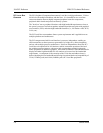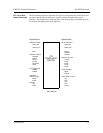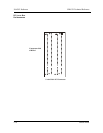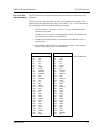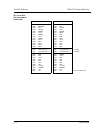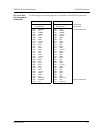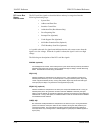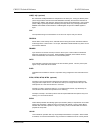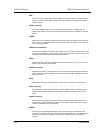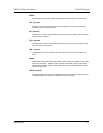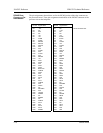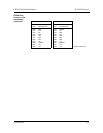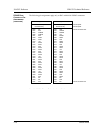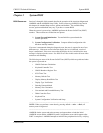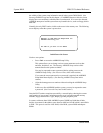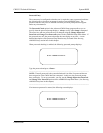
ISA/PCI Reference CBI/CGI Technical Reference
Chassis Plans2-16
PAR
Parity is even parity across AD[31::00] and C/BE[3::0]#. Parity generation is required by all PCI
agents. The master drives PAR for address and write data phases; the target drives PAR for
read data phases.
PAR64 (optional)
Parity Upper DWORD is the even parity bit that protects AD[63::32] and C/BE[7::4]#. The
master drives PAR64 for address and write data phases; the target drives PAR64 for read data
phases.
PERR#
Parity Error is for the reporting of data parity errors during all PCI transactions except a Special
Cycle. There are no special conditions when a data parity error may be lost or when reporting
of an error may be delayed.
PRSNT1# and PRSNT2#
PRSNT1# and PRSNT2# are related to the connector only, not to other PCI components. They
are used for two purposes: indicating that a board is physically present in the slot and providing
information about the total power requirements of the board.
REQ#
Request indicates to the arbiter that this agent desires use of the bus. This is a point to point
signal. Every master has its own REQ#.
REQ64# (optional)
Request 64-bit Transfer, when actively driven by the current bus master, indicates it desires to
transfer data using 64 bits. REQ64# has the same timing as FRAME#. REQ64# has meaning
at the end of reset.
RST#
Reset is used to bring PCI-specific registers, sequencers and signals to a consistent state.
SBO# (optional)
Snoop Backoff is an optional cache support pin which indicates a hit to a modified line when
asserted. When SBO# is deasserted and SDONE is asserted, it indicates a "clean" snoop
result.
SDONE (optional)
Snoop Done is an optional cache support pin which indicates the status of the snoop for the
current access. When deasserted, it indicates the result of the snoop is still pending. When
asserted, it indicates the snoop is complete.
SERR#
System Error is for reporting address parity errors, data parity errors on the Special Cycle
command, or any other system error where the result will be catastrophic. If an agent does not
want a non-maskable interrupt (NMI) to be generated, a different reporting mechanism is
required.



